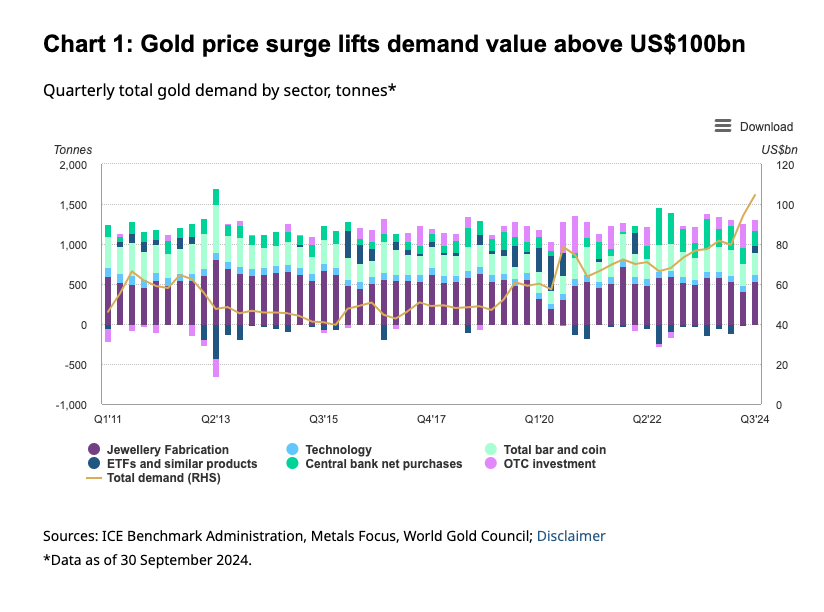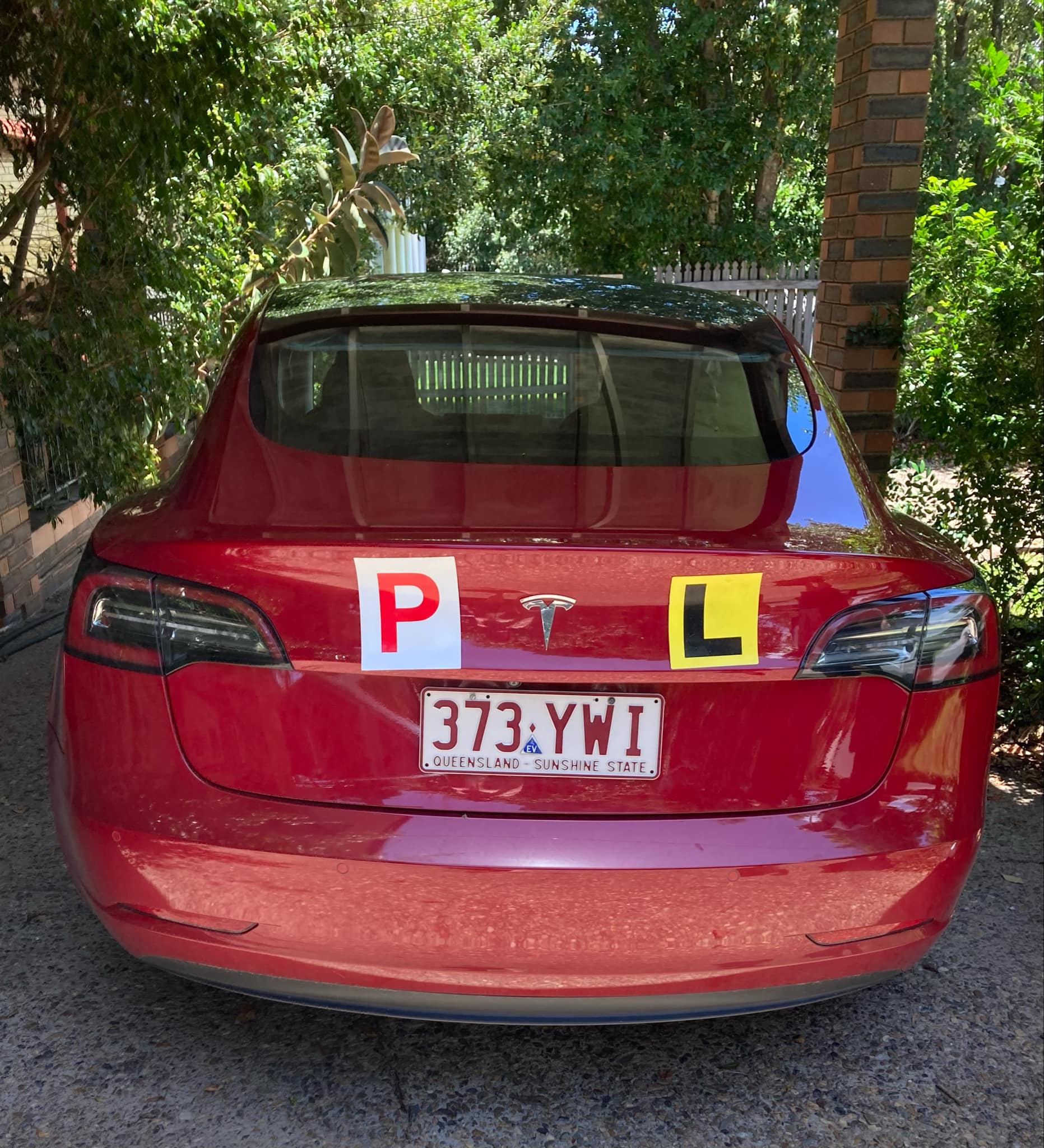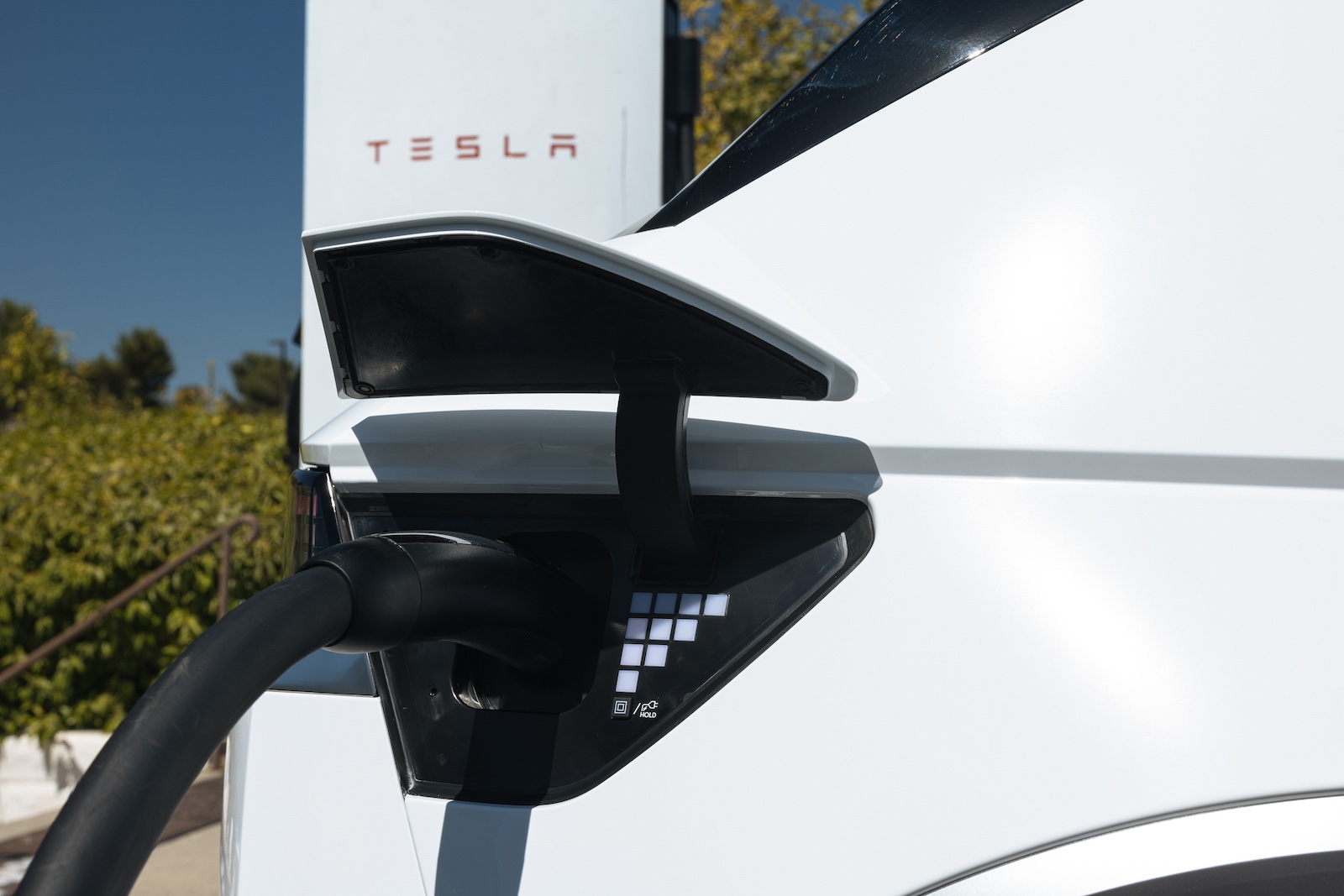Gold demand set a third-quarter record, driving the price to a series of record highs.
Including over-the-counter (OTC) sales, gold demand came in at 1,313 tons in Q3, a 5 percent year-on-year increase.
The gold price averaged a record $2,474 an ounce in the third quarter. That represented a 28 percent year-on-year increase.
The total value of third-quarter demand rose by 35 percent and exceeded $100 billion for the first time.
Flows of gold into ETFs were a significant demand driver. Globally, gold-backed funds increased their holdings by 95 tons. It was the first quarter of positive ETF growth since the first quarter of 2022. As the World Gold Council put it, “Gold’s price rally, along with rate cuts and continued geopolitical turbulence, prompted Western ETF investors finally to pick up the baton.”
Driven by the surge in ETF holdings, total investment demand came in at 364 tons. That nearly doubled last year’s Q3 investment demand.
Through the third quarter, investment demand totaled 859 tons, solidly above the 10-year average of 774 tons.
While ETF holdings grew, bar and coin demand lagged due to a sharp drop in buying in China and Turkey, along with sluggish Eurozone demand. This was somewhat counterbalanced by a surge in Indian demand after the government cut taxes on gold and silver imports by more than half, lowering duties from 15 percent to 6 percent.
Total bar and coin demand came in at 269.4 tons. This was in line with the second quarter, but a 9 percent decline over Q3 2023.
The World Gold Council noted, “Western investors continued to show strong interest in gold, but this has been countered by heightened selling interest as the price reached record levels, resulting in far lower net levels of demand.”
Higher gold prices drug jewelry demand lower by 12 percent year-on-year in terms of volume. However, consumers spent more on gold jewelry due to those higher prices, with the value of demand rising 13 percent.
Even with high prices creating headwinds, gold jewelry demand was up 17 percent from a very weak second quarter.
Sales volumes were down in most markets, with the notable exception of India, where jewelry buying surged after the reduction in the import duty.
Jewelry demand in China was notably lower, dropping 36 percent below the 10-year average. It was the weakest quarter for jewelry sales in China since Q3 2010.
According to the World Gold Council, “Similar to last quarter, the weakness can be attributed to continued strength in the local gold price, low consumer confidence, and slower economic growth.”
Meanwhile, Indian gold jewelry sales rebounded, charting the best third quarter since 2015.
Central bank buying slowed modestly in the third quarter, coming in at 186 tons. This was below the 2023 record but in line with 2022 levels.
According to the World Gold Council, “There are now clearer indications that the sharp increase in the gold price since March has indeed inhibited some buying, as well as encouraging some selling among banks that manage their gold reserves tactically.”
The Bank of Poland was the biggest buyer in Q3, adding 42 tons of gold to its reserves.
Gold demand for industrial applications grew by 7 percent year-on-year, coming in at 83 tons. Demand in the electronics sector was up 9 percent.
According to the World Gold Council, “The third quarter is generally the strongest for electronics demand as many major electronics companies launch new products and devices onto the market.”
The World Gold Council projects demand will remain strong through the end of the year, even as gold prices continue to climb. Increasing media attention on gold’s stellar returns will likely broaden investor interest. Meanwhile, geopolitical uncertainty due to the continuing Middle East conflict and the U.S. presidential election will likely continue to drive safe-haven demand.
Also, “The shift that is underway in global interest rate policy should promote further interest in gold investment as the opportunity cost of owning gold drops.”
********




